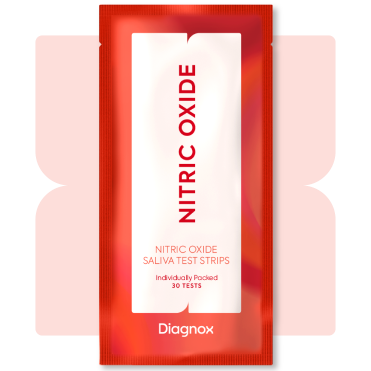Causes of Low Nitric Oxide
Low nitric oxide levels can stem from various lifestyle and biological factors:
- Aging: As one ages, the body produces less nitric oxide due to a decline in key enzymes called nitric oxide synthases [6].
- Chronic Stress: Stress causes oxidative damage, which breaks down nitric oxide faster and disturbs its balance in the body [7].
- Poor Diet: If your diet lacks nitrates, antioxidants, and amino acids, such as L-arginine, then nitric oxide production can decrease [8].
- Poor Lifestyle: A lack of physical activity slows blood flow and limits nitric oxide production [8].
These factors together can reduce nitric oxide levels and leave you feeling low on energy.
Signs of Low Nitric Oxide
Watch out for these signs of low nitric oxide:
- Fatigue: When nitric oxide is low, your blood vessels can’t widen properly, limiting oxygen and nutrient delivery to muscles and organs. This slows down energy production and leaves you feeling tired or drained.
- Low Stamina or Sluggish Recovery: Without enough nitric oxide, it can be harder to stay active and bounce back after physical exertion [8].
- Increased Blood Pressure: When your blood vessels can't widen properly due to low levels of nitric oxide, it can restrict your blood flow, which, in turn, can lead to higher blood pressure.
Track Your Body’s Nitric Oxide Levels
Noticing signs like tiredness, low stamina, or poor circulation? These could point to low nitric oxide.
Keeping track of your nitric oxide levels helps you understand how your lifestyle affects your reproductive and overall health. With regular monitoring, you can spot changes early and make smarter choices to support your well-being.
Diagnox Nitric Oxide Saliva Test Strips offer a simple, convenient way to monitor your nitric oxide levels at home. Just prepare the strip, saturate it with saliva, wait 60 seconds, and compare the color change to the included chart. This easy process empowers you to stay proactive and confident in managing your health.
With this insight, you can tailor your diet and lifestyle to better support your reproductive and hormonal balance every day.







.jpg)





